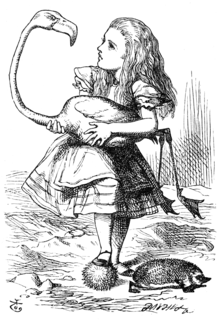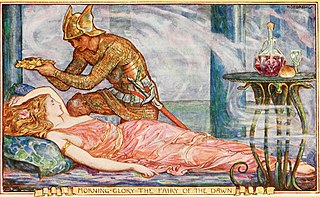
Harlan Jay Ellison was an American writer, known for his prolific and influential work in New Wave speculative fiction and for his outspoken, combative personality. Robert Bloch, the author of Psycho, described Ellison as "the only living organism I know whose natural habitat is hot water."

Science fiction is a genre of speculative fiction which typically deals with imaginative and futuristic concepts such as advanced science and technology, space exploration, time travel, parallel universes, extraterrestrial life, sentient artificial intelligence, cybernetics, certain forms of immortality, and the singularity. Science fiction predicted several existing inventions, such as the atomic bomb, robots, and borazon, whose names entirely match their fictional predecessors. In addition, science fiction might serve as an outlet to facilitate future scientific and technological innovations.

Ursula Kroeber Le Guin was an American author best known for her works of speculative fiction, including science fiction works set in her Hainish universe, and the Earthsea fantasy series. She was first published in 1959, and her literary career spanned nearly sixty years, producing more than twenty novels and over a hundred short stories, in addition to poetry, literary criticism, translations, and children's books. Frequently described as an author of science fiction, Le Guin has also been called a "major voice in American Letters". Le Guin said she would prefer to be known as an "American novelist".

Pulp Fiction is a 1994 American crime film written and directed by Quentin Tarantino, who conceived it with Roger Avary. Starring John Travolta, Samuel L. Jackson, Bruce Willis, Tim Roth, Ving Rhames, and Uma Thurman, it tells several stories of crime in Los Angeles, California. The title refers to the pulp magazines and hardboiled crime novels popular during the mid-20th century, known for their graphic violence and punchy dialogue.

Speculative fiction is a term that has been used with a variety of meanings. The broadest interpretation is as a category of fiction encompassing genres with elements that do not exist in reality, recorded history, nature, or the present universe. Such fiction covers various themes in the context of supernatural, futuristic, and other imaginative realms. The genres under this umbrella category include, but are not limited to, science fiction, fantasy, horror, superhero fiction, alternate history, utopian and dystopian fiction, and supernatural fiction, as well as combinations thereof.

The Internet Speculative Fiction Database (ISFDB) is a database of bibliographic information on genres considered speculative fiction, including science fiction and related genres such as fantasy, alternate history, and horror fiction. The ISFDB is a volunteer effort, with the database being open for moderated editing and user contributions, and a wiki that allows the database editors to coordinate with each other. As of April 2022, the site had catalogued 2,002,324 story titles from 232,816 authors.

The Arthur C. Clarke Award is a British award given for the best science fiction novel first published in the United Kingdom during the previous year. It is named after British author Arthur C. Clarke, who gave a grant to establish the award in 1987. The book is chosen by a panel of judges from the British Science Fiction Association, the Science Fiction Foundation, and a third organisation, which as of 2019 is the Sci-Fi-London film festival. The award has been described as "the UK's most prestigious science fiction prize".
The Hugo Award for Best Novel is one of the Hugo Awards given each year for science fiction or fantasy stories published in, or translated to, English during the previous calendar year. The novel award is available for works of fiction of 40,000 words or more; awards are also given out in the short story, novelette, and novella categories. The Hugo Awards have been described as "a fine showcase for speculative fiction", and "the best known literary award for science fiction writing".

The Fifth Elephant is a fantasy novel by British writer Terry Pratchett, the 24th book in the Discworld series. It introduces the clacks, a long-distance semaphore system. The novel was nominated for the Locus Award in 2000.
An adventure film is a form of adventure fiction, and is a genre of film. Subgenres of adventure films include swashbuckler films, pirate films, and survival films. Adventure films may also be combined with other film genres such as action, animation, comedy, drama, fantasy, science fiction, family, horror, or war.
Young adult fiction (YA) is a category of fiction written for readers from 12 to 18 years of age. While the genre is primarily targeted at adolescents, approximately half of YA readers are adults.
Locus: The Magazine of The Science Fiction & Fantasy Field, founded in 1968, is an American magazine published monthly in Oakland, California. It is the news organ and trade journal for the English-language science fiction and fantasy fields. It also publishes comprehensive listings of all new books published in the genres. The magazine also presents the annual Locus Awards. Locus Online was launched in April 1997, as a semi-autonomous web version of Locus Magazine.
Technomancer may refer to:
Lucy A. Snyder is an American science fiction, fantasy, humor, horror, and nonfiction writer.

Fiction is any creative work, chiefly any narrative work, portraying individuals, events, or places in ways that are imaginary or inconsistent with history, fact, or plausibility. In a narrow sense, "fiction" refers to written narratives in prose – often referring specifically to novels, novellas, and short stories. More broadly, however, fiction encompasses imaginary narratives expressed in any medium, including not just writings but also live theatrical performances, films, television programs, radio dramas, comics, role-playing games, and video games.

R.E.M. was an American rock band from Athens, Georgia, formed in 1980 by drummer Bill Berry, guitarist Peter Buck, bassist Mike Mills, and lead vocalist Michael Stipe, who were students at the University of Georgia. One of the first alternative rock bands, R.E.M. was noted for Buck's ringing, arpeggiated guitar style; Stipe's distinctive vocal quality, unique stage presence, and obscure lyrics; Mills's melodic bass lines and backing vocals; and Berry's tight, economical drumming style. In the early 1990s, other alternative rock acts such as Nirvana and Pavement viewed R.E.M. as a pioneer of the genre. After Berry left the band in 1997, the band continued its career in the 2000s with mixed critical and commercial success. The band broke up amicably in 2011 with members devoting time to solo projects after having sold more than 85 million albums worldwide and becoming one of the world's best-selling music acts.

Fantasy is a genre of speculative fiction involving magical elements, typically set in a fictional universe and sometimes inspired by mythology and folklore. Its roots are in oral traditions, which then became fantasy literature and drama. From the twentieth century, it has expanded further into various media, including film, television, graphic novels, manga, animations and video games.

The Hugo Award is an annual literary award for the best science fiction or fantasy works and achievements of the previous year, given at the World Science Fiction Convention and chosen by its members. The Hugo is widely considered the premier award in science fiction. The award is administered by the World Science Fiction Society. It is named after Hugo Gernsback, the founder of the pioneering science fiction magazine Amazing Stories. Hugos were first given in 1953, at the 11th World Science Fiction Convention, and have been awarded every year since 1955.

Penguin Random House LLC is a multinational conglomerate publishing company formed on 1 July 2013 from the merger of Penguin Group and Random House.

The following outline is provided as an overview of and topical guide to fantasy:













